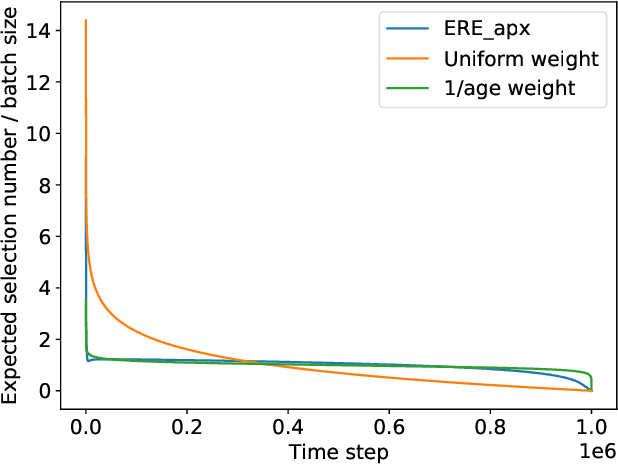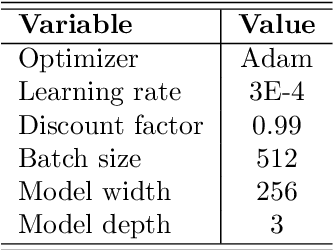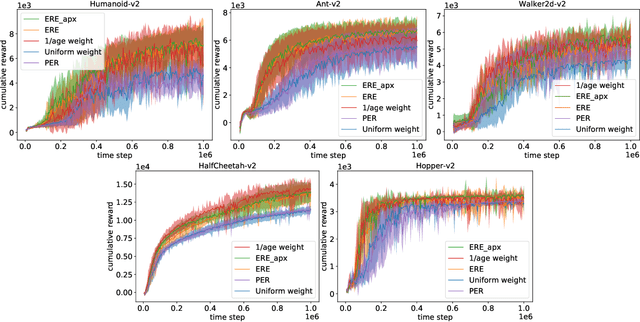Explaining Off-Policy Actor-Critic From A Bias-Variance Perspective
Paper and Code
Oct 06, 2021



Off-policy Actor-Critic algorithms have demonstrated phenomenal experimental performance but still require better explanations. To this end, we show its policy evaluation error on the distribution of transitions decomposes into: a Bellman error, a bias from policy mismatch, and a variance term from sampling. By comparing the magnitude of bias and variance, we explain the success of the Emphasizing Recent Experience sampling and 1/age weighted sampling. Both sampling strategies yield smaller bias and variance and are hence preferable to uniform sampling.
View paper on
 OpenReview
OpenReview
 Add to Chrome
Add to Chrome Add to Firefox
Add to Firefox Add to Edge
Add to Edge